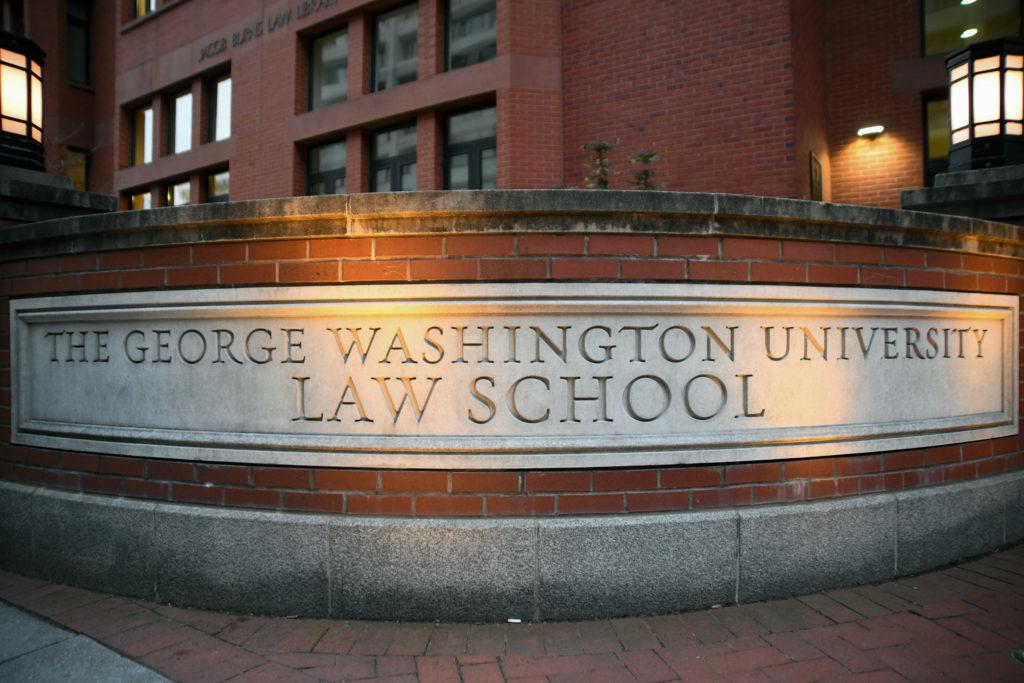The law school will launch a specialization in national security and cybersecurity law this fall.
The program, which offers 12 courses that can be completed within a year, was developed one year after the law school created a new cybersecurity initiative that hosts monthly events with cybersecurity law experts and discussions on law and technology. Officials and professors said the new specialization will prepare master of laws candidates for D.C. legal work in growing cybersecurity fields, from counterterrorism to information privacy.
Liz Field, a law school spokeswoman, said the new specialization was developed because students in the national security and U.S. foreign relations law program were interested in taking computer and internet-related courses. Many law students are finding work in the cybersecurity field upon graduating, and the school wanted to provide students a program tailored to these areas, she said.
“We hoped to give these students more specialized training,” Field said in an email.
Field added that the courses in the specialization will be taught by new part-time faculty who are cybersecurity experts. Kathleen Kedian, the former chief of the Department of Justice’s counterintelligence and export control section, will be teaching a course on national security and counterintelligence in the fall.
Other lecturers brought in for the program will teach courses like Cybersecurity Law and Policy, Internet Law, Artificial Intelligence Law and Counterintelligence, she said. She added that the law school will consider adding courses or hiring more professors based on “student feedback.”
Paul Rosenzweig, a professional lecturer at the law school, is teaching Cybersecurity Law and Policy and Artificial Intelligence in the fall. He said the courses in cybersecurity allow law students to explore policy and law questions that are on the “front burner” of policymaking in D.C.
“Students at GW have been on the forefront in learning how to think about and talk about cybersecurity problems,” he said. “This is the right place for students to get a broad understanding of all that.”
The law school currently offers 10 specialized programs in various topics for the master of laws degree, according to its website.
Orin Kerr, a professor at University of Southern California’s law school, launched the cybersecurity initiative last year at GW. He said the new specialization will help attract more students to the school and encourage students to study in a growing field, especially in D.C.
“There’s a lot of demand for cybersecurity-law-trained lawyers,” he said. “Very few law schools have faculty expertise in this field, and there is both student interest and jobs in the field.”
Cybersecurity has been a top University priority in recent years. The GW Cybersecurity Initiative was launched in 2012, and GW partnered with an information technology company in 2015 to conduct cybersecurity research. In 2015, more than 10 cybersecurity researchers at GW were awarded National Science Foundation grants to study cybersecurity – double the number of grants received five years prior.
Nearly 70 percent of corporate law departments see a need for proactive involvement in cybersecurity, and there is a shortage of lawyers with enough understanding of the topic to work in the field, according to a 2015 study at the Maurer School of Law at Indiana University.
With privacy and data breaches on the rise, cybersecurity professors and experts at other institutions said these programs lend law students an upper hand for those seeking skills in a developing field.
Karl Manheim, a law professor at Loyola Law School in Los Angeles, said the new specialization makes sense given GW’s location in the District because the nation’s capital is a hub for politics and policymaking. He said cybersecurity-trained lawyers are in high demand in sectors ranging from national security to the entertainment industry.
“Most lawyers versed in this space get gobbled up by the tech and entertainment companies,” he said. “As a result, law firms eagerly recruit for this specialty,”
Markus Rauschecker, the cybersecurity program director at University of Maryland’s law school, said the growing field means “demand is up and it is only going to continue to grow.”
“There are many legal and policy issues associated with cybersecurity, which I think is why law students and lawyers are taking notice and really seeing an opportunity there to become involved,” he said.





